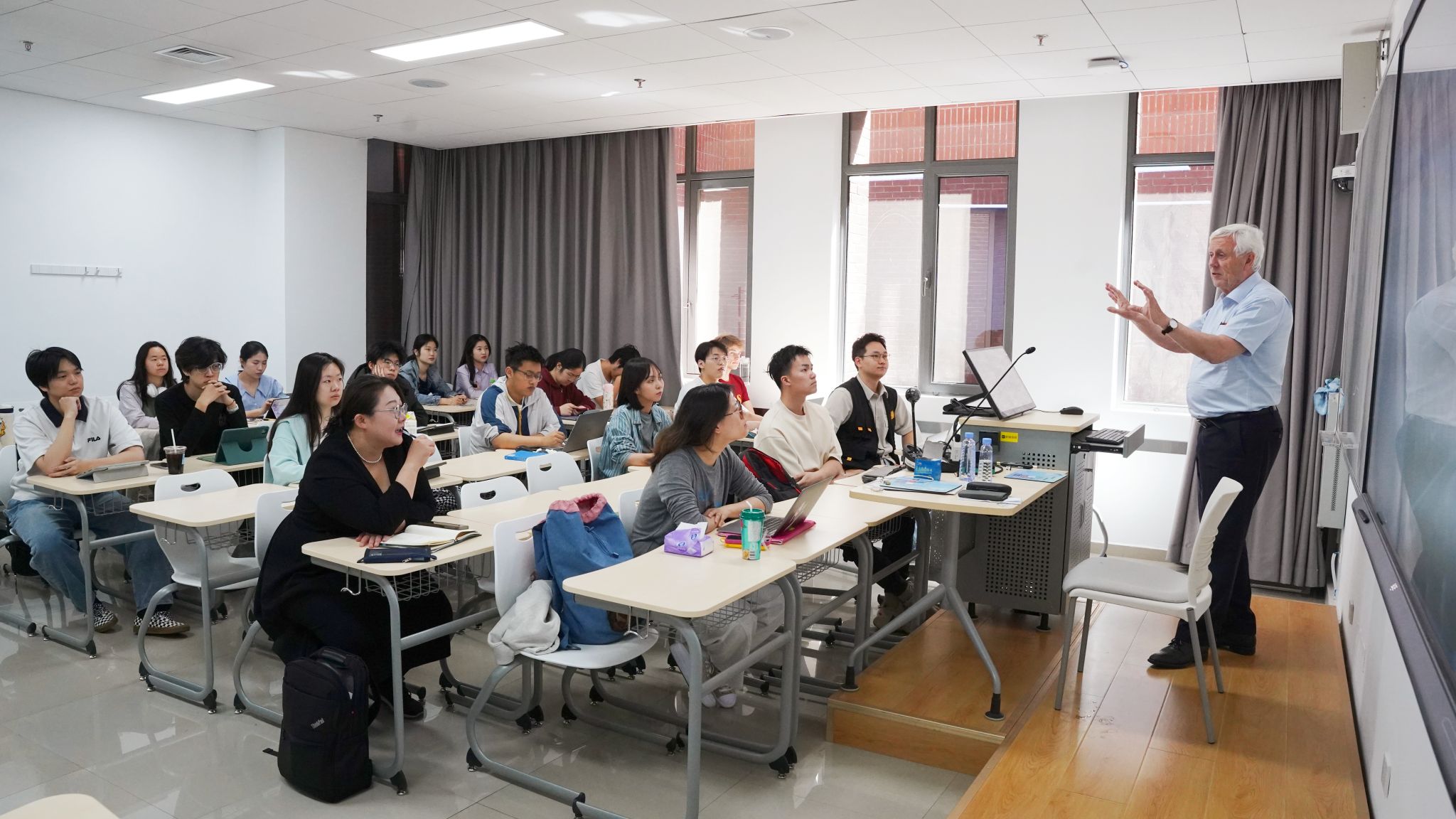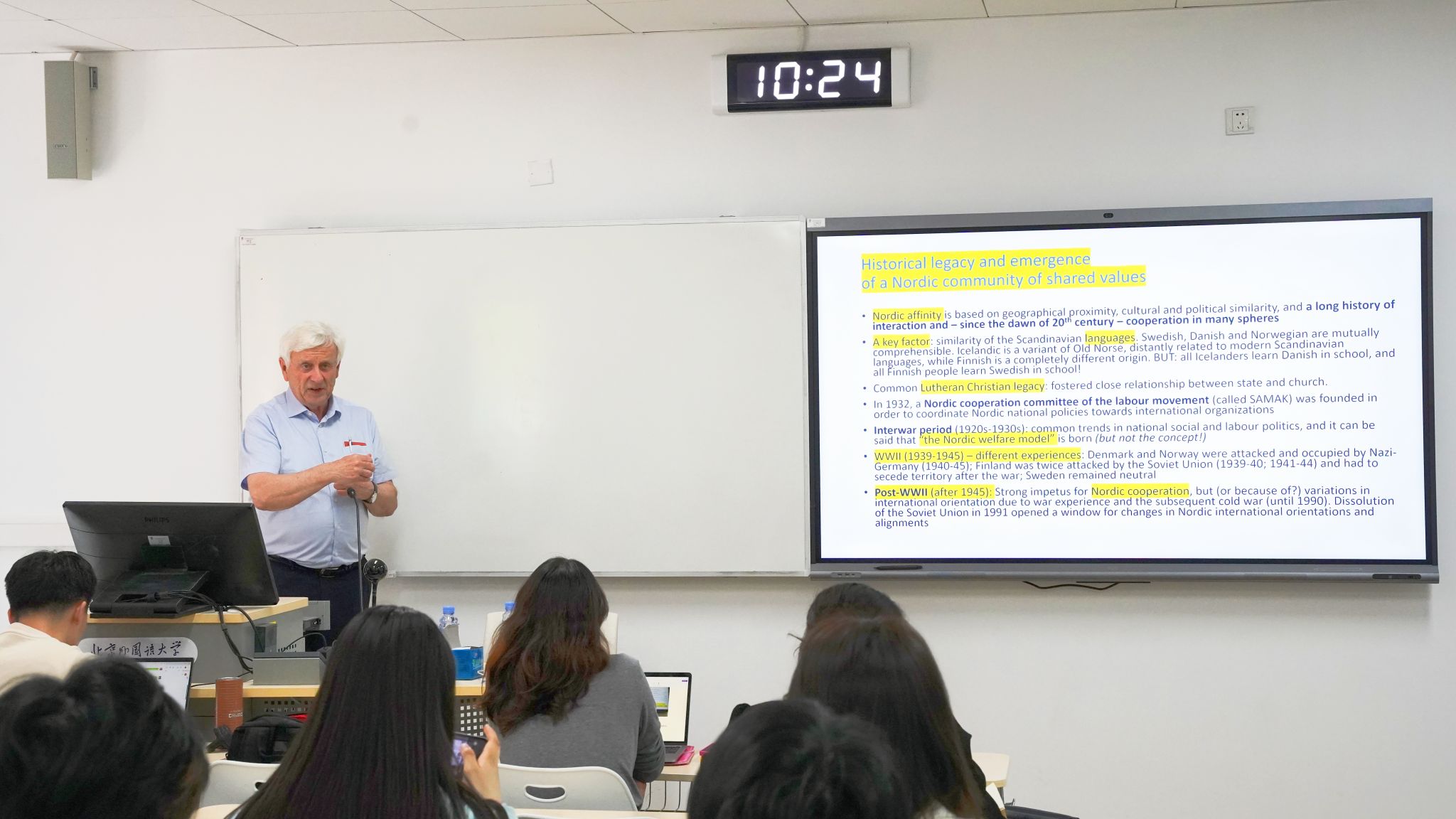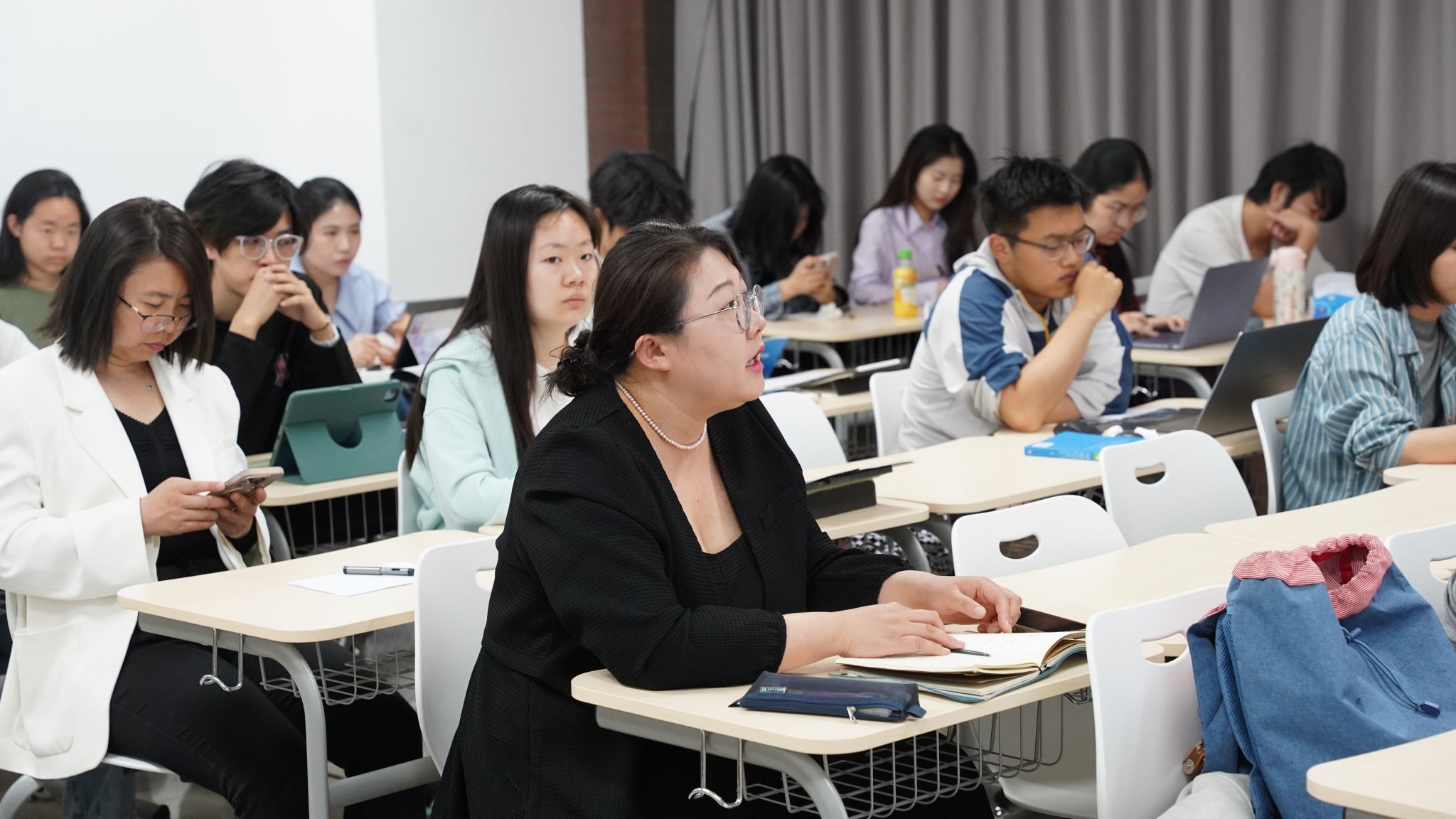Den 29. april 2025 gjestet professor Stein Kuhnle (77) fra Universitetet i Bergen Beijings fremmedspråksuniversitet (BFSU), hvor han holdt en forelesning om de nordiske internasjonale relasjoner og samarbeid. Kuhnle, som er professor i sammenliknende politikk, har i flere tiår vært en sentral brobygger mellom norsk og kinesisk akademia.
I sin forelesning tok han for seg hvordan Norden har gått fra historisk rivalisering til institusjonalisert samarbeid og regional integrasjon. Han understreket at fredelig sameksistens ikke er en gitt tilstand, men snarere et resultat av langvarige prosesser preget av konflikt og målrettet konfliktløsning.
– Militær konflikt mellom de nordiske landene har vært utenkelig siden andre verdenskrig, uttalte Kuhnle, og pekte samtidig på hvordan dagens geopolitiske utvikling – særlig Sveriges og Finlands inntreden i NATO – har styrket det nordiske samarbeidet ytterligere.
– Utviklingen i Europa og verden styrker nordisk samarbeid på tvers av alle politikkfelt, sa han videre.
Forelesningen åpnet også for refleksjon rundt fremtidige relasjoner mellom Norden og Kina. Kuhnle minnet om at de skandinaviske landene var blant de første i Vesten til å anerkjenne Folkerepublikken Kina, og trakk særlig frem det tette akademiske samarbeidet – ikke minst innen offentlig velferdspolitikk.
Han viste til Kinas uttrykte interesse for den nordiske velferdsmodellen, og stilte dette i kontrast til den mer kritiske tilnærmingen fra amerikansk hold. Samtidig pekte han på at Norge også har noe å lære av Kina, særlig når det gjelder felles velferdsutfordringer som en aldrende befolkning.
Et konkret eksempel på det bilaterale samarbeidet er det sino-nordiske velferdsforskningsnettverket (SNoW), som Kuhnle har vært med på å etablere. Han har også spilt en sentral rolle i opprettelsen av det nordiske forskningssenteret ved Fudan-universitetet i Shanghai, som markerer sitt 30-årsjubileum i år.
Kuhnles budskap kan oppsummeres slik: Det nordiske samarbeidet er resultatet av en lang historisk prosess og må vernes om i en tid med geopolitiske endringer – endringer som ikke bare styrker båndene internt i Norden, men også setter søkelys på nye muligheter for gjensidig og respektfullt samarbeid med land som Kina.


English:
On April 29, a lecture on “Nordic Cooperation and International Relations of the Nordic Countries” was held at School of European Languages and Cultures (SELC), Beijing Foreign Studies University. The event featured Professor Stein Kuhnle, Emeritus Professor of Comparative Politics from the University of Bergen, Norway. The lecture was hosted by Dr. LI Jingjing, Norwegian Lecturer at SELC, and attracted around 40 participants from across Beijing Foreign Studies University, as well as from other institutions such as Renmin University of China and Yangtze University.
At the beginning of the lecture, Professor Kuhnle provided an overview of the historical trajectory of the five Nordic countries (Norway, Denmark, Sweden, Finland, and Iceland) over the past 80 years, highlighting how these nations transitioned from periods of war and conflict to peace and cooperation. He noted that despite a history marred by conflicts, the Nordic countries have gradually moved towards closer cooperation over the past two centuries. Since World War II, cooperation in political, social, and cultural fields has deepened, forming a Nordic community based on shared values. Kuhnle emphasized that this cooperation extends beyond the region through joint diplomatic actions and participation in international organizations, enhancing the Nordic region's global influence.
Kuhnle also highlighted that the Nordic countries' security policies diverged during the Cold War but have significantly strengthened in the fields of security and defense in recent years due to changing geopolitical circumstances. In 2019, the Nordic countries adopted the “Vision 2030,"aiming to make the Nordic region the most sustainable and integrated region globally. This vision focuses on green growth, carbon neutrality, circular economies, and social sustainability while emphasizing knowledge, innovation, cross-border mobility, and digital cooperation.


During the interactive session, Professor Kuhnle engaged with the audience on the prospects for cooperation between the Nordic countries and China. He pointed out that with increasing global challenges, there is vast potential for collaboration between the Nordic countries and China in addressing climate change and public health security. He also mentioned that the growing bilateral relations between China and individual Nordic countries, such as Norway and Finland, have laid a solid foundation for broader cooperation.
Before the lecture, Professor Kuhnle met with the Dean of SELC, Professor KE Jing. During the meeting, the two sides reached a consensus on further strengthening academic exchanges and cooperation, laying a solid foundation for future Sino-European academic collaboration. Following the lecture, Professor Kuhnle presented his publications to the Secretary of Party general branch, LIU Houguang, expressing his support and expectations for the academic research and teaching at the school. This academic event aims to better serve national strategies and make new explorations and contributions to the cultivation of "European Studies" talents and the development of related disciplines.
(Contributed by:SELC; Written by: Li Jingjing, Benjamin Gråberg; Photographed by: Liu Lei; Audited by: Liu Houguang)






